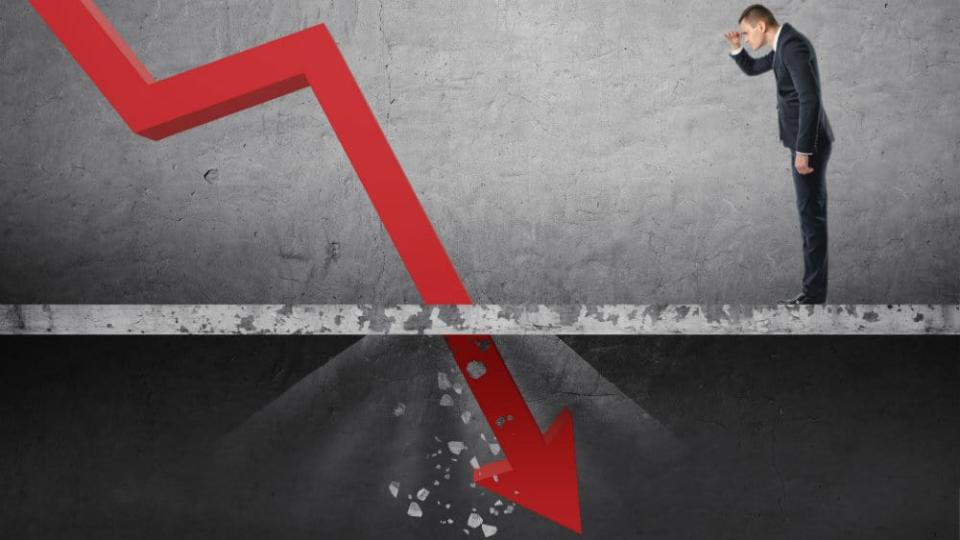How to Prepare Your TFSA for a Market Downturn

A lot of investors seem to go into panic mode before a potential recession. Despite having dozens of recessions in the last 100 years, investors still seem to be at a loss of what to do before a market downturn. This can lead to panicked sell-offs that, frankly, can be quite unwise.
In fact, a recession offers investors that have been taking some risks a chance to take a hard look at their choices. It’s a great time for reflection and remembering why you started to invest in the first place. Odds are the phrase “to make money” came up, but money for what? Debts? School? Retirement?
Most likely, the reason you chose to invest is for long-term gains, unless you’re a short-seller doing this for a living. But if the former is the case, it’s best to start looking at your stocks and either hold onto the ones that can see you through to that long-term goal, or sell those riskier ones and replace them with better long-term options. If you do this, here are two areas where you’re most likely to see the best results.
Banks
Canadian banks performed as some of the best in the world during the last recession. Within a year, most had rebounded to where they were right before the recession hit and continued upwards from there. Another bonus is that these banks almost all offer high dividends, so even when your shares take a hit, these banks will continue paying you every quarter to hold on.
If you’re considering a Canadian bank stock, I would highly recommend Toronto-Dominion Bank (TSX:TD)(NYSE:TD). The stock has been performing incredibly well, even during this economic climate, pumping out revenue despite a tough year so far. A lot of the bank’s success comes from its diversified background, with banking operations in both Canada and the United States. Its U.S. operations have actually become one of the top 10 banks in the country, providing about 30% of earnings.
TD has also been growing, looking into the wealth and commercial management sectors, which have proven highly lucrative already. All this growth has seen double-digit return on equity year after year and has secured its dividend yield of 4.05% for at least the near future.
While, of course, banks would be hit during a recession, TD will likely be one of the first to rebound, as the stock has a strong balance sheet and future growth to see it weather most storms. The stock currently trades at $72 per share — about 13% below fair value.
Utilities
Another great option to solidify your TFSA is by investing in utilities. There are two reasons that utilities tend to do well even when a recession hits. First, the government actually protects these businesses. Second, no matter what, people have to keep the lights on. Utilities offer an essential service, so unless you’re going to turn off your power, heat, water, or what have you, these companies will likely continue to remain at least stable.
A great option to consider is Fortis (TSX:FTS)(NYSE:FTS), a utilities company tied to 99% regulated assets, meaning there shouldn’t be too many surprises in this company’s future. In fact, most analysts wouldn’t be surprised if the company continued to grow as it expands its business on both sides of the border. The company offers a diversified portfolio with plenty of growth opportunities and has been acquiring businesses almost constantly to stretch as far as possible.
But what many love about Fortis, besides its strong business model, is its dividends. Even during the last recession, the company increased its dividend yield, which sits at 3.29% as of writing.
Foolish takeaway
If you’re looking for a strong portfolio to take you through any major economic downturn, I would strongly consider these two stocks. Both have a long history of stellar performance, so even when the markets plummet, both will bounce right back as soon as the opportunity arises.
More reading
Fool contributor Amy Legate-Wolfe owns shares of TORONTO-DOMINION BANK.
The Motley Fool’s purpose is to help the world invest, better. Click here now for your free subscription to Take Stock, The Motley Fool Canada’s free investing newsletter. Packed with stock ideas and investing advice, it is essential reading for anyone looking to build and grow their wealth in the years ahead. Motley Fool Canada 2019

 Yahoo Finance
Yahoo Finance 